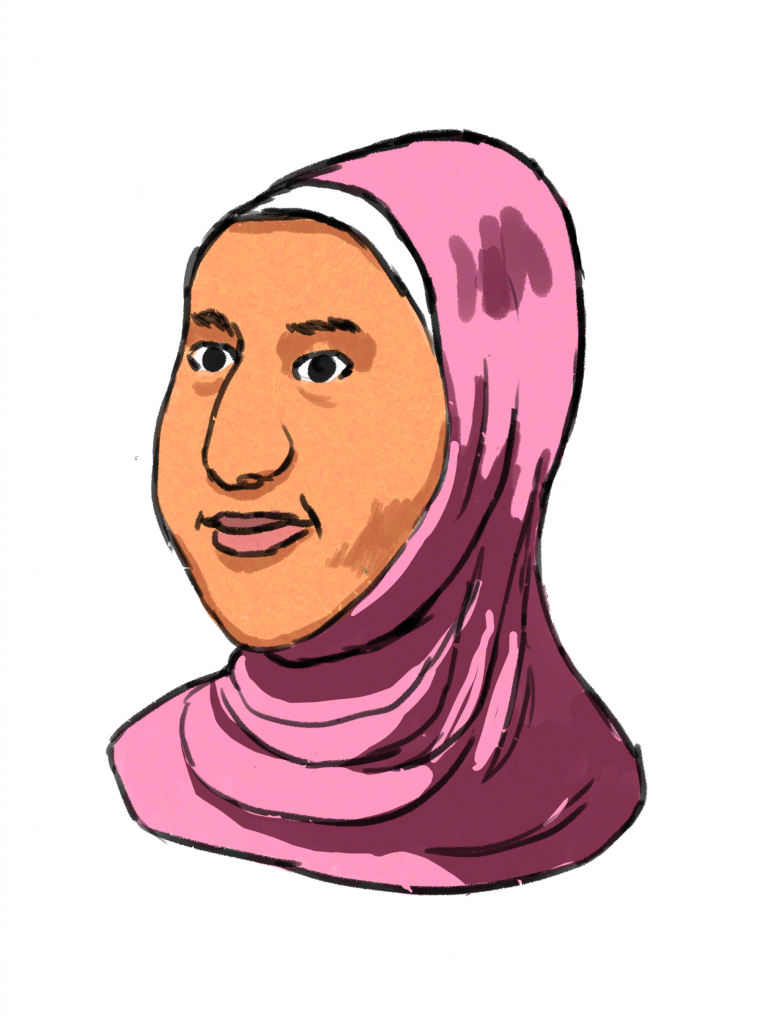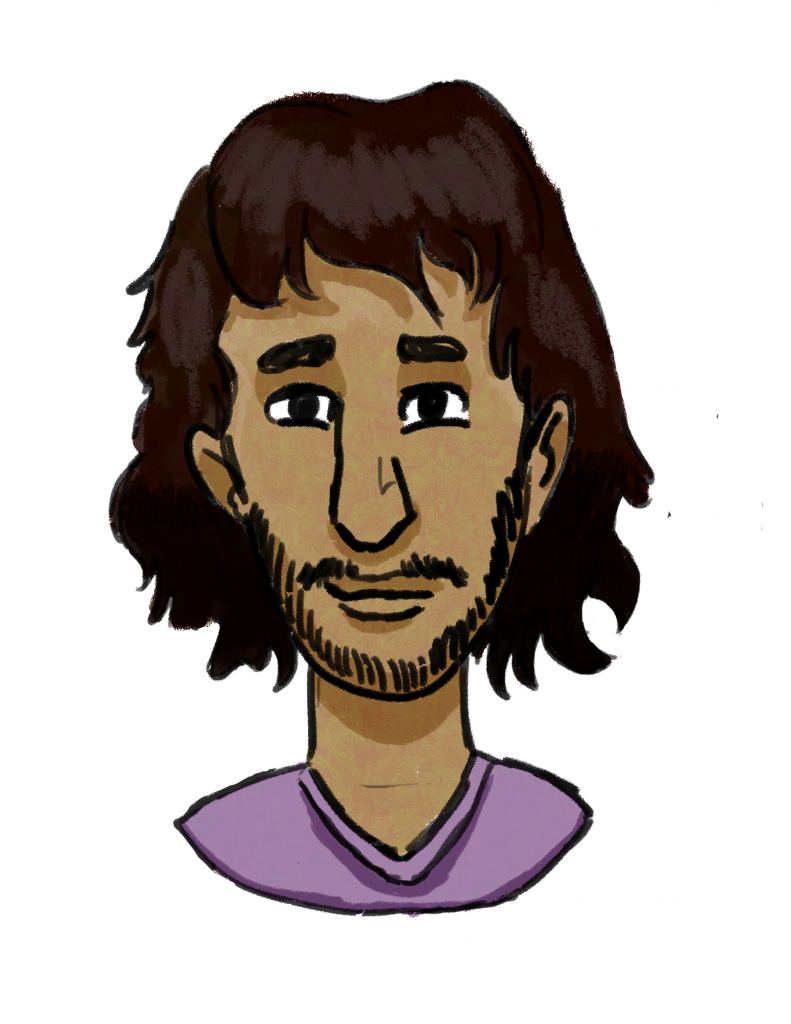In dieser Lektion
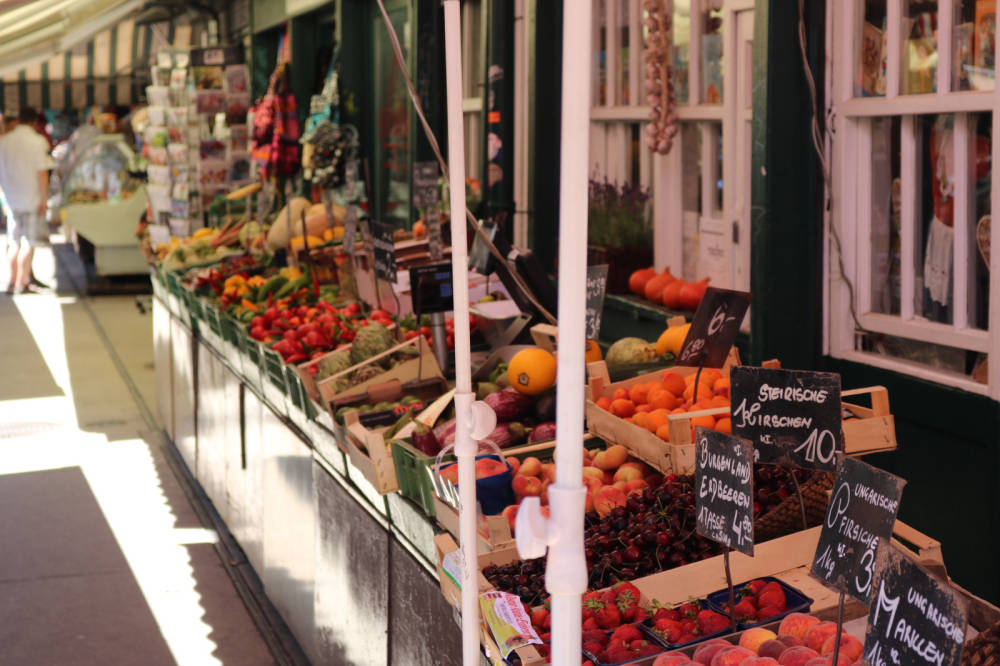
Lesen
“Hallo!” und “Tschüss!” “Danke!” und “Bitte!”
Lesen Sie die Dialoge mit Ihrem/Ihrer Partner*in. Lesen Sie die Dialoge dann laut als Rollenspiele vor.
Read the dialogues below with your partner. Then read the dialogues out loud as role-plays.
In der Konditorei: Fatma geht in die Konditorei.
Fatma: Hallo!
Verkäufer: Grüß Gott!
Fatma: Ein Stück Sachertorte*, bitte.
Verkäufer (gibt Fatma die Torte): Bitte schön.
Fatma: Danke sehr.
Verkäufer: Gern geschehen.
Fatma: Tschüss!
Verkäufer: Auf Wiedersehen!
*Sacher-Torte ist ein Schokoladenkuchen (chocolate cake), der den Namen des Wiener Hotels Sacher trägt.
More information about this Viennese specialty is available on the Hotel Sacher’s website: auf Englisch oder auf Deutsch.
Am Markt: Adan geht zum Markt und findet einen Weinstand.
Weinverkäuferin: Servus!
Adan: Eine Flasche Wein, bitte.
Weinverkäuferin: Dieser Rotwein ist gut.
Adan (nimmt den Wein): Super! Danke!
Weinverkäuferin: Kommen Sie bald wieder!
Adan: Ja, klar. Bis bald! Ciao!
Weinverkäuferin: Ciao!
Arbeit mit dem Lesen
Lesen Sie die Dialoge oben noch einmal und beantworten Sie die folgenden Fragen.
Read the above dialogues once more and answer the following questions.
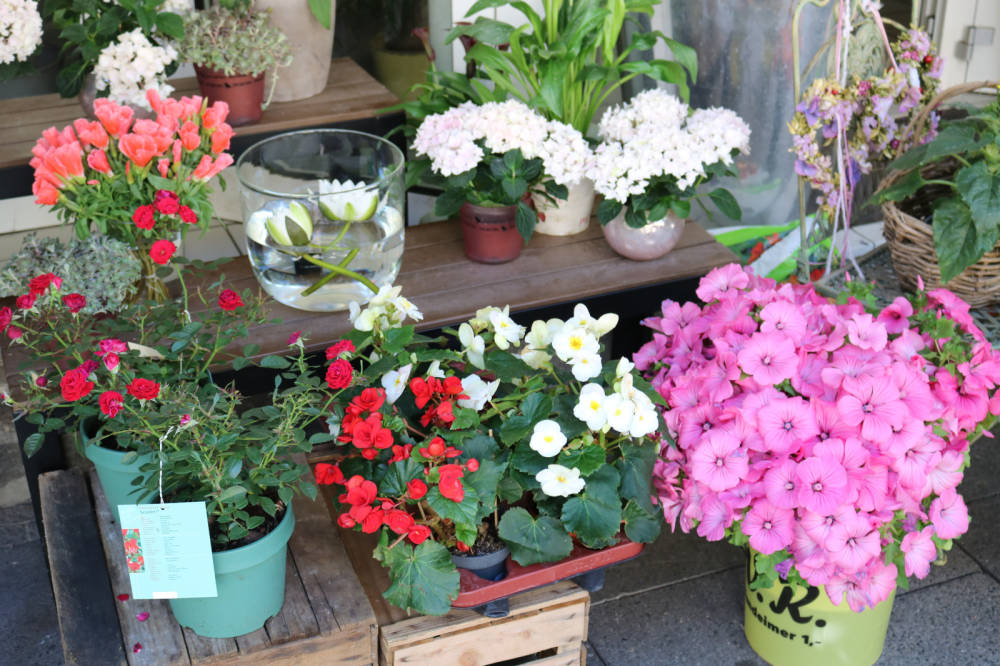
Kultur
Begrüßungen (Greetings) und Verabschiedungen (Farewells)
Greetings and farewells are an important part of shopping in German-speaking countries. Customers typically greet shop personnel when they enter a store. Even in a grocery store, a polite greeting and farewell are often exchanged between customers and cashiers.
You will hear many different greetings and farewells in various regions of the German-speaking world. In Austria and southern Germany (especially Bavaria), for instance, you’ll often hear the greeting “Grüß Gott!” This wording reflects the Catholic-infused history and traditions of these regions with the word Gott (God), although today it has no religious overtones. However, you are unlikely to hear “Grüß Gott” in northern Germany — and if you do, the speakers may well be Bavarian or Austrian. While the formal “Grüß Gott” is often used when the speakers don’t know each other, an informal alternative is “Servus” as both a greeting and a farewell among speakers who know each other and use the familiar du to address each other. Other regional variations include the informal greetings “Grüß dich” (in Austria and southern Germany) and “Grüezi” (in Switzerland), as well as the informal farewell “Pfiati” (in Bavaria and Austria). In northern Germany, you will also hear the greeting “Moin” or “Moin moin!”
Greetings used across the German-speaking world include “Hallo,” the English “Hi,” and the Italian “Ciao.” At various times of day, German speakers also greet with “Guten Morgen” (Good morning), “Guten Tag” (Good day), and “Guten Abend” (Good evening), which can be shortened to “Morgen,” “Tag,” or “Abend.”
Common farewells include “Auf Wiedersehen” and “Auf Wiederschauen” (until we see each other again; often shortened to “Wiederseh’n” or “Wiederschau’n,”), as well as “Gute Nacht,” or simply “Nacht” (Good night). The informal farewell “Tschüs” or “Tschüss” is very common in Berlin and northern and central Germany. Especially in regions of Austria and Switzerland bordering Italy, “Ciao” is a common greeting and farewell. Speakers who know each other and anticipate seeing each other again soon may say “Bis bald” (See you soon) or “Bis später” (See you later). Variations on this phrase include “Bis dann” (See you then) or “Bis” followed by a day of the week (such as “Freitag,” Friday).
Arbeit mit dem Lesen
“Hallo!” oder “Tschüss!”
Kultur
Höflichkeitsausdrücke (Polite expressions)
As the above dialogues demonstrate, polite expressions are commonly used when shopping.
“Bitte” is a very useful word with two meanings: please and you’re welcome. When using “bitte” to express you’re welcome, you can intensify it by adding “sehr” (very) or “schön” (pretty): “Bitte sehr” and “Bitte schön” both mean you’re very welcome. The phrase “Bitte schön” may also be used by someone working in a shop to express How may I help you?
Another way to say you’re welcome is with “gern” or “gerne” (gladly) or “gern geschehen” (done with pleasure).
“Danke” means thank you. Like “bitte,” “danke” can be intensified by adding “sehr” or “schön”: “Danke sehr” and “Danke schön” both mean thank you very much. To express deep gratitude, you can say “tausend Dank” (a thousand thanks).
Arbeit mit dem Lesen
“Danke!” und “Bitte!”
Wortschatz
Geschäfte
Wo kaufen Sie ein? Welche Geschäfte sind das?
In the exercise below, drag and drop the names of the stores to the images that match them.
Then choose the right answers to complete the statements.
Auf dem Markt
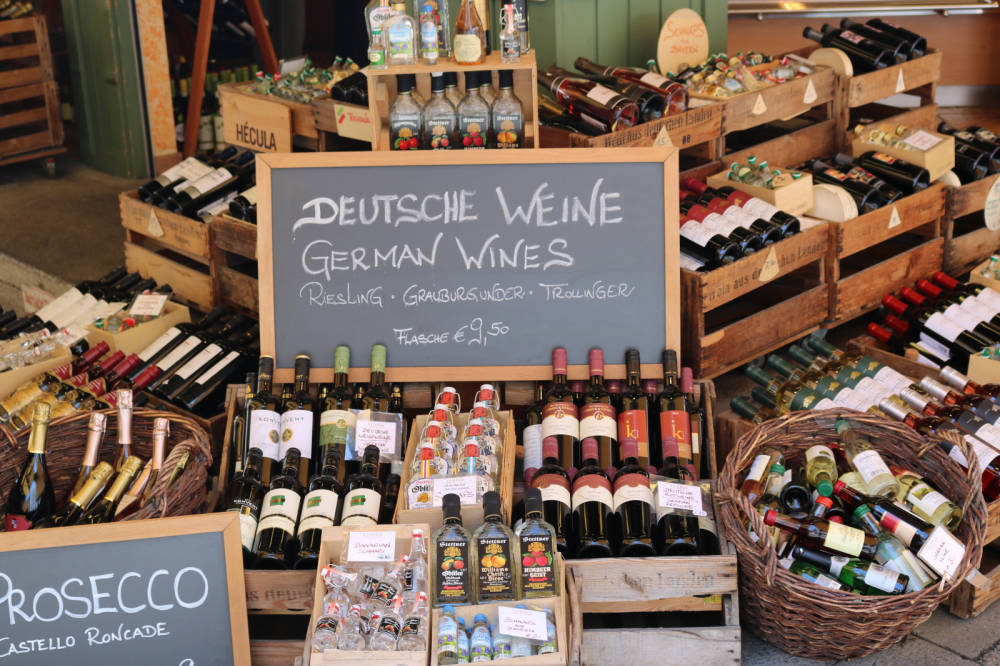
Strukturen
Komposita (Compound Nouns)
The German language features many compound words, or Komposita. These are two or more words that come together to form a new word. The words for different kinds of shops or stands are often compound nouns, like Supermarkt, Blumengeschäft, and Weinladen. These examples all have clear English equivalents, but in some cases, what German says with one word takes several words in English: der Feinkostladen = gourmet food store or specialty store; die Eisdiele = ice cream shop.
Such compound nouns always carry the class (der, die or das) of the last word element in the compound word. Thus, while all of the following words meaning “wine shop” form their compounds starting with the der-noun Wein (der Wein), their classes are determined by the last element, which in each case means “store” or “shop” (die Handlung; das Geschäft; der Laden):
der Wein + die Handlung >> die Weinhandlung
der Wein + das Geschäft >> das Weingeschäft
der Wein + der Laden >> der Weinladen
Similarly, both of the following words meaning “flower shop” start with the plural noun Blumen (plural of the feminine die Blume), but their classes depend on the last element:
die Blumen (pl) + das Geschäft >> das Blumengeschäft
die Blumen (pl) + der Laden >> der Blumenladen
Another example is the words meaning “ice cream shop,” which vary by region. Both start with the das-noun Eis (das Eis), but their classes depend on the last element:
das Eis + die Diele >> die Eisdiele
das Eis + der Salon >> der Eissalon
This is a fun aspect of the German language, because it allows you to be creative and construct new words. Give it a shot in the exercise below!
